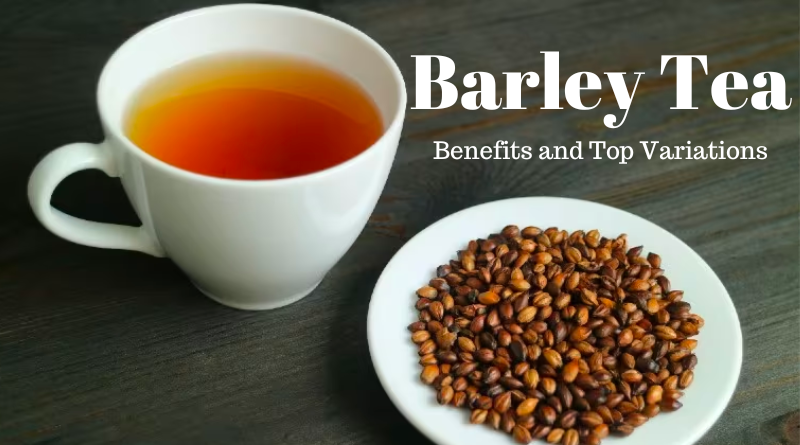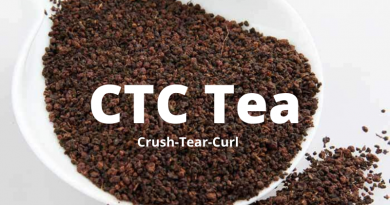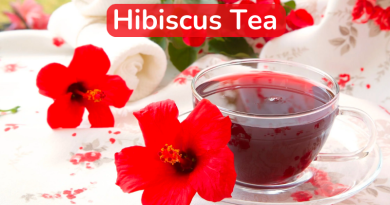Barley Tea – Brewing Better Health
Barley tea, also known as roasted barley tea or mugicha in Japanese, is a popular tea beverage in East Asia. It is made from roasted barley kernels and has a nutty, slightly bitter flavor. Barley roasted tea can be served hot or cold and is often consumed as a refreshing and caffeine-free alternative to traditional tea or coffee.

In recent years, barley tea has gained popularity outside of East Asia, as people have become more interested in the health benefits associated with this flavorful beverage. Korean Barley tea is believed to promote digestion, improve hydration, and provide various other health benefits. In this article, we will explore the health benefits of korean barley tea and provide a guide on how to make this delicious beverage at home. Whether you’re a tea lover or simply looking for a healthy and refreshing drink, barley tea is definitely worth trying.
Health Benefits of Barley Tea
Barley tea is a flavorful and healthy beverage that is enjoyed by many people around the world. Here are some of the health benefits associated with barley tea:
Promotes Digestion
Barley tea is believed to have a positive effect on the digestive system. It can help relieve symptoms of indigestion and heartburn. Additionally, barley roasted tea is rich in fiber, which can promote regular bowel movements and reduce the risk of constipation.
Improves Hydration
Barley roasted tea is a great way to stay hydrated. It is rich in vitamins and minerals that can help maintain the body’s fluid balance. Drinking barley tea can also help reduce the risk of dehydration during hot weather.
May Lower Cholesterol Levels
Research suggests that drinking barley tea may help lower cholesterol levels. This is because barley contains beta-glucans, which are soluble fibers that can help reduce the absorption of cholesterol in the gut.
May Promote Weight Loss
Drinking barley tea may also promote weight loss. This is because it contains fiber and antioxidants that can help suppress appetite and reduce the absorption of fat.
May Have Antioxidant Properties
Barley tea is rich in antioxidants, which can help protect the body against damage caused by free radicals. This can reduce the risk of chronic diseases such as cancer and heart disease.
Scientific evidence supports many of these health claims. For example, a study published in the Journal of Agricultural and Food Chemistry found that drinking barley tea reduced cholesterol levels in rats. Another study published in the Journal of Nutrition found that consuming barley fiber reduced appetite and increased feelings of fullness in human subjects.
While barley tea is generally considered safe, it’s important to note that it may interact with certain medications. For example, barley contains gluten, which may be problematic for people with celiac disease or gluten sensitivity. Additionally, barley may interact with blood thinners such as warfarin. As with any dietary supplement, it’s important to talk to your healthcare provider before consuming barley roasted tea if you are taking any medications or have any underlying health conditions.
How to Make Barley Tea
Ingredients:
- 1 cup of roasted barley
- 8 cups of water
- Optional sweeteners (honey, sugar, or stevia)
Instructions:
- Rinse the barley kernels under running water and drain well.
- Preheat the oven to 350°F and spread the barley kernels on a baking sheet.
- Roast the barley in the oven for 10-15 minutes or until the kernels turn golden brown.
- Remove the roasted barley from the oven and let it cool down.
- Add the roasted barley to a pot of water and bring it to a boil.
- Reduce the heat and let the barley simmer for 10-15 minutes.
- Remove the pot from the heat and let the tea steep for another 10-15 minutes.
- Strain the tea through a fine mesh strainer or cheesecloth.
- Add sweeteners such as honey, sugar, or stevia to taste.
- Serve the tea hot or cold.
Tips:
- You can adjust the amount of barley and water according to your taste preference. Use less barley for a lighter flavor or more for a stronger taste.
- If you prefer a sweeter taste, add more sweetener or try using different types of sweeteners such as brown sugar or maple syrup.
- For a refreshing summer drink, serve barley tea over ice with a slice of lemon or lime.
Top brands for Korean barley tea
- Ottogi Korean Barley Tea
- Harim Harimté Korean Barley Tea
- Binggrae Korean Barley Tea
- Lotte Korean Barley Tea
- Songwon Korean Barley Tea
- Maeil Korean Barley Tea
- Chamnuri Korean Barley Tea
- Ilhwa Korean Barley Tea
Different Variations of Barley Tea
Roasted Barley and Corn Tea

This variation of barley tea is also known as “oksusu-cha” in Korea. It is made by roasting a mixture of barley and corn kernels and steeping them in hot water. The resulting tea has a nutty flavor and is often enjoyed as a refreshing summer drink.
To make roasted barley and corn tea, follow these steps:
- Mix together equal parts of roasted barley and corn kernels.
- Roast the mixture in the oven at 350°F for 10-15 minutes or until golden brown.
- Add the roasted mixture to a pot of boiling water and let it simmer for 10-15 minutes.
- Remove the pot from the heat and let the tea steep for an additional 10-15 minutes.
- Strain the tea through a fine mesh strainer or cheesecloth.
- Serve hot or cold with honey or other sweeteners as desired.
Roasted Barley and Rice Tea

This variation of barley tea is also known as “genmaicha” in Japan. It is made by mixing roasted barley with green tea leaves and roasted brown rice. The resulting tea has a nutty and slightly sweet flavor.
To make roasted barley and rice tea, follow these steps:
- Mix together equal parts of roasted barley, green tea leaves, and roasted brown rice.
- Boil water and let it cool down to around 175°F.
- Add the mixture to a tea infuser or tea bag and steep it in the hot water for 3-5 minutes.
- Remove the infuser or tea bag and serve hot or cold.
These are just two examples of the different variations of barley tea that you can enjoy. Feel free to experiment with different ingredients and ratios to find your favorite blend.
FAQs
Does barley tea contain caffeine?
No, barley tea is naturally caffeine-free, making it a great option for those who are sensitive to caffeine or looking to reduce their caffeine intake. However, some commercially available barley tea blends may contain added ingredients, such as green tea or black tea, which do contain caffeine. It’s always best to check the label or ingredients list before purchasing barley tea to ensure that it is caffeine-free, or to opt for homemade barley tea using pure roasted barley.
Is barley tea safe for pregnant women?
Yes, barley tea is generally considered safe for pregnant women to consume. In fact, it is often recommended as a natural remedy for morning sickness due to its calming properties. However, it’s always best to consult with a healthcare provider before adding any new foods or beverages to your diet during pregnancy.
How often can barley tea be consumed?
Barley tea can be consumed daily as a refreshing and hydrating beverage. However, it’s important to keep in mind that excessive consumption of barley tea may lead to excessive intake of caffeine or other compounds present in the tea. It’s recommended to consume korean barley tea in moderation, and to consult with a healthcare provider if you have any concerns.
What is the difference between barley tea and other types of teas?
Barley tea differs from other types of teas, such as green tea or black tea, in terms of its flavor, caffeine content, and nutritional profile. Barley roasted tea is naturally caffeine-free, making it a great alternative for those who are sensitive to caffeine or looking to reduce their caffeine intake. Additionally, barley tea is rich in antioxidants and may offer a range of health benefits, including improved digestion and hydration.
Overall, barley tea is a unique and flavorful beverage that offers a range of potential health benefits. As with any food or beverage, it’s important to consume korean barley tea in moderation and to consult with a healthcare provider if you have any concerns or questions.




